Mozambique: Consolidation of democracy requires electoral justice
Renamo leader remembers “friend of the people of Mozambique”

Lusa (File photo) / Afonso Dhlakama
The president of the Mozambican National Resistance (Renamo), Afonso Dhlakama, on Sunday remembered Mário Soares as “a friend of the people of Mozambique” and recalled the personal connection he maintained with the former Portuguese statesman, despite their ideological differences.
“Mário Soares was a friend of Mozambique’s Frelimo [Liberation Front of Mozambique, the party in power], of Renamo and the people in general, a man who made the connection with the Mozambican people.” We lost one of the great friends from Europe, the opposition leader said in a message reproduced yesterday on the website of the newspaper O País.
For Afonso Dhlakama, the former Portuguese president, who died in Lisbon on Saturday at the age of 92, “understood the problems of Mozambique and sought to help the country”. He highlighted Soares’ role in the negotiations between Portugal and Frelimo which led to the 1974 Lusaka accord and Mozambican independence the following year.
“Although ideologically he was a socialist, he was a good friend of mine, very close, both he and his wife, who passed away last year,” the Renamo leader noted, recalling Maria Barroso’s humanitarian food distribution activities during periods of famine in Mozambique.
Mário Soares, said Dhlakama, was a simple person, above issues of protocol. “When he was president, I would just arrive in Portugal and we did not need any protocol, he would just receive me.”
Daviz Simango, leader of the third largest Mozambican political party, Movimento Democrático de Moçambique (MDM), also reacted today to Soares’ death.
“Mozambique and Africa owe him a lot: he was an African hero living in Europe,” Simango told reporters in the city of Beira, where he is mayor.
Simango said the death of Mário Soares was “sad news” and sent his condolences “to the Portuguese Republic, the Portuguese people, the family and the Socialist Party, of which he was a founder”.
The president of the MDM highlighted the role of Mário Soares in ending the colonial system and in the decolonization of several African countries.
Simango, son of one of Frelimo’s main founders, Uria Simango, recalled that Soares’ fight against the then Portuguese regime pitted him against Humberto Delgado in the 1958 presidential election. Although defeated in the ballot, “he had an overwhelming victory in Beira city”.
That support, he continued, led to Soares’ exile in Sao Tome and Principe, where he witnessed the suffering of Mozambicans deported to the archipelago.
“Soares saw African blood, lived Mozambique’s suffering and was a key player in the liberation of these people,” Simango said.
Mário Soares died at the Red Cross Hospital in Lisbon, where he had been hospitalized since December 13.
The Portuguese government decreed three days of national mourning, starting Monday.
The body of the former president will lie in state at the Jeronimos Monastery from 13:00 PM on Monday, and the state funeral will take place starting 15:30 PM Tuesday in the Cemetery of Prazeres, in Lisbon.
Born on December 7, 1924, in Lisbon, Mário Alberto Nobre Lopes Soares, a lawyer, fought the dictatorship of Estado Novo and was founder and first leader of the Portuguese Socialist party.
After the revolution of 25 April 1974, he returned from exile in France and was Minister of Foreign Affairs and Prime Minister between 1976 and 1978 and again between 1983 and 1985. He applied for Portugal to join the then European Economic Community (EEC) in 1977, and signed its treaty in 1985.
In 1986, he won the presidential elections and was president for two terms until 1996.


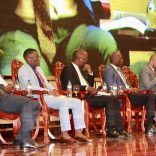
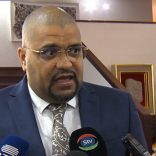
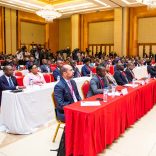
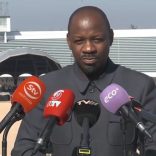
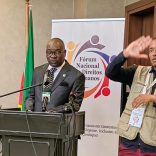






Leave a Reply
Be the First to Comment!
You must be logged in to post a comment.
You must be logged in to post a comment.